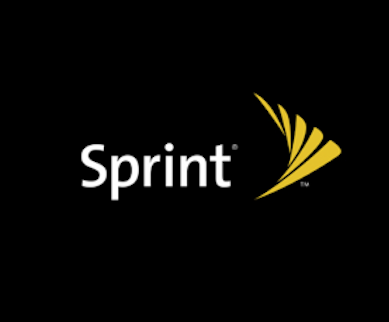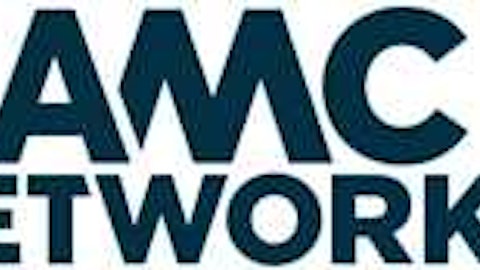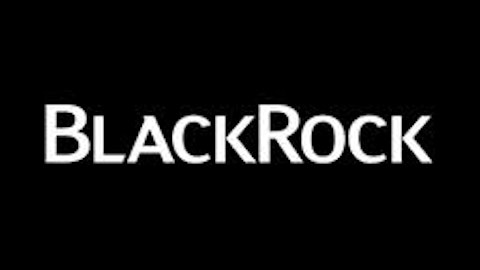There is always a lot of excitement around mergers and acquisitions. This is particularly true when a company has been struggling. When Softbank offered $20 billion to acquire 70% of Sprint Nextel Corporation (NYSE:S), shareholders were understandably excited. Not only did this offer cause their stock to go up, but it also would give Sprint a majority owner with deep pockets to help expand and compete more effectively. In a surprising twist, DISH Network Corp (NASDAQ:DISH) is offering $25 billion to acquire all of Sprint.

What Do You Do In Case Of Slowing Growth? Buy Another Slow Growing Company! I know that Dish shareholders are probably excited about the idea that their company could get its hands on the number three domestic wireless operator. On the surface, the deal sounds logical. DISH Network Corp (NASDAQ:DISH) would be able to market its services to the roughly 55 million Sprint Nextel Corporation (NYSE:S) subscribers. Sprint will be able to expand its product lineup into broadband, video, and voice offerings.
Here is the problem, there are numerous companies already with these offerings, and each of them is far stronger financially than this combined entity would be. The two most obvious examples are AT&T (NYSE:T) and Verizon Communications Inc. (NYSE:VZ). Both of these companies offer wireless, broadband, video, and voice offerings. Competitor Comcast Corporation (NASDAQ:CMCSA) doesn’t offer wireless, but the company’s NBCUniversal division offers growth prospects that DISH Network Corp (NASDAQ:DISH)/Sprint could hope to attain.
Slow Growth And Negative Free Cash Flow….Why Is This A Good Idea? If we pretend for a minute that Dish and Sprint are merged, the first major issue with the company is, their growth rate. Analysts are currently calling for about 5% growth in EPS at Sprint and 5.23% growth at DISH Network Corp (NASDAQ:DISH) over the next five years. Even if we assume this combined entity would increase its earnings growth, their competition suggests this isn’t going to be a fast grower any time soon.
AT&T (NYSE:T) is expected to grow EPS by about 5.5% over the next few years, and Verizon is expected to grow by 7.35%. Even if Dish/Sprint Nextel Corporation (NYSE:S) managed to grow at an average of these two, that still only yields 6.4% growth. The truth is, when you add two slow growing companies together, rarely do you get a vehicle for fast growth in return.
The second issue with this proposed merger is Sprint’s negative free cash flow would seem to more than offset Dish’s positive free cash flow. In the last three years, Sprint has gone from $2.88 billion in positive free cash flow to $1.262 billion in negative free cash flow. By comparison, DISH Network Corp (NASDAQ:DISH)’s free cash flow has essentially stayed flat at just over $1 billion. If you add these two players together, in 2012 they would have produced $235 million in negative free cash flow.
By comparison, Comcast generated over $9 billion in positive free cash flow last year, Verizon Communications Inc. (NYSE:VZ) generated over $15 billion, and AT&T produced nearly $20 billion. Granted, there are certainly cost savings and additional sales to be had, but when you start with a negative number, you have a long way to go to convince shareholders this is a great idea.
Crushing Debt And No Cash Flow To Service It Too! It would be one thing if this combined company wasn’t going to carry a lot of debt, but along with potentially negative free cash flow, a DISH Network Corp (NASDAQ:DISH)/Sprint combination would have a horrible balance sheet. The combined balance sheet of the two companies is the third reason investors should be skeptical of this combination.
Dish is proposing to issue 0.5953 shares of Dish stock, plus pay $4.76 per share in cash to acquire Sprint Nextel Corporation (NYSE:S). The company says they expect to spend about $8.2 billion of cash on hand, and finance the remainder. Here is the thing; going into this merger means Dish will essentially use all of their available cash and investments. If the company follows through with this plan, they will also need about $9.1 billion in additional debt to pay for the rest.
Considering that Dish already has $11.35 billion in long-term debt, and Sprint has $23.96 billion in long-term debt, this combined entity could have as much as $44.4 billion in long-term debt. Since Dish would have spent all of their cash on the merger, they would acquire Sprint’s $9.25 billion in cash and investments. This combination would have 3.8 times as much long-term debt as cash, and this is horribly worse than the existing ratio of 2.59 at Sprint and 1.54 at Dish currently.
The fourth reason to avoid this tie-up is the combined entity would have terrible cash flow versus their long-term debt load. With potentially negative free cash flow and net long-term debt of over $35 billion, Dish/Sprint Nextel Corporation (NYSE:S) would be challenged just to stay afloat, much less compete effectively.
By comparison, Comcast produced $0.47 of free cash flow versus each dollar of long-term debt last year. Verizon Communications Inc. (NYSE:VZ) came in a close second with $0.38, and AT&T produced $0.35. As you can see, Dish/Sprint’s competition would start with an almost insurmountable advantage.
The bottom line is, if you are a Dish shareholder you should probably pray that this merger doesn’t happen. Dish on its own may not be growing fast, but it is cash flow positive and has a reasonable balance sheet. Sprint Nextel Corporation (NYSE:S) shareholders should cut and run now. Long-term investors should probably look to AT&T (NYSE:T), Comcast Corporation (NASDAQ:CMCSA), or Verizon. Each of these companies pays a dividend, produce significant free cash flow, and they all are growing faster than either Dish or Sprint. In the end, this potential deal just flat out stinks.
The article 4 Reasons This Deal Stinks originally appeared on Fool.com is written by Chad Henage.
Copyright © 1995 – 2013 The Motley Fool, LLC. All rights reserved. The Motley Fool has a disclosure policy.



